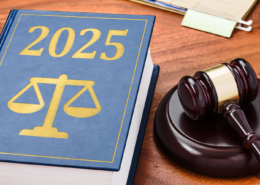Russian Use of Crypto for Sanctions Evasion on the Rise
What Financial Institutions Should Know, Including Risk Mitigation Measures
📅 May 21, 2024
📅 May 21, 2024
The United States in March designated 13 firms and two individuals operating in blockchain-based services that facilitated virtual currency payments for the Russian financial sector, “enabling potential sanctions evasion.” The sanctioned targets facilitated transactions or offered other services that helped OFAC-designated entities evade sanctions. The designations were the latest in OFAC’s efforts to hinder Russian sanctions evasion using virtual assets.
These and other designations by the United States during the past two years highlight Russia’s increasing use of virtual currencies to evade sanctions.
Experts agree that there is not enough liquidity in the virtual assets space to enable largescale sanctions evasion by Moscow, but sanctioned individuals and entities have used virtual currencies—most notably Tether—to access the global financial system and pay for restricted goods and technologies.
Beyond the Hype – The True Role of Virtual Assets in Russia Sanctions Evasion
Virtual Assets’ Attraction and Changing Dynamics in Russia Sanctions Evasion Tactics
So, how is Russia using virtual assets to evade sanctions?
Blockchain analytics firm TRM Labs assesses that in March 2022 Task Force Rusich, a U.S.-designated Russian neo-Nazi militia fighting in Ukraine, raised more than $100,000 in crypto. Media reports in late 2022 also highlighted that pro-Russian groups, such as the Novorossia Aid Coordinating Center (NACC), are also raising funds in cryptocurrencies to help Russia evade sanctions. The NACC was set up in 2014 to support Moscow’s operations in Ukraine and raised more than $20,000 in mainly bitcoin to buy drones for Russia.
Russian media in September reported that Russia’s Finance Ministry is exploring the possibility of legalizing Decentralized Financial Organizations (DeFi DAOs) to increase liquidity in the market. DeFi DAOs are organizations that use blockchain technology and smart contracts to manage financial transactions without relying on financial intermediaries to move money, which theoretically could enable Russia to evade sanctions.
Russia in 2023 paved the way for its digital ruble, which Russian officials claimed would help it evade sanctions and deal a blow to the global financial system for which the U.S. dollar is the reserve currency. Russian lawmaker Anatoly Aksakov, who coauthored the digital ruble legislation, claims that the central bank digital currency (CDBC) would help Russia protect itself from sanctions and “carry out settlements with foreign countries and foreign companies.” However, experts say that the digital ruble would not help Russia access the dollar and the euro, from which many of its businesses, government officials, and elites are blocked. Russia claims its CBDC, if used for international transactions, will enable payments without the involvement of foreign commercial banks or western financial infrastructure, like the SWIFT financial messaging system from which numerous Russian banks are blocked.
U.S. regulators will likely increase their focus on cryptocurrency mixers, exchanges, mining operations, and associated individuals facilitating Russia’s sanctions evasion.
The Yermak-McFaul International Working Group on Russian Sanctions in January 2024 published a paper, “Exposing and Exploiting the Kremlin’s Software Networks and Dependencies.” The report highlights that despite the Kremlin’s efforts to reduce Russia’s reliance on western software for critical systems, the transition is progressing slowly, and Russia still relies on a network of IT companies and software providers to enable its critical sectors, including finance and military.
Virtual asset service providers and miners almost certainly rely on Western equipment, components, and software to conduct business.
The report makes several recommendations to limit Russia’s access to critical software, including imposing sanctions on Russian software developers; prohibiting western vendors from providing updates and support to institutions in the Russian military-industrial complex; and alerting financial institutions to the importance of preventing financial transactions between Russian companies and software service providers. If implemented, these actions could also limit the use of virtual currency mining to circumvent sanctions.
FinCEN in 2022, shortly after Russia’s full-scale invasion of Ukraine began, released an alert advising financial institutions and virtual currency exchangers and administrators—generally considered money services businesses pursuant to the Bank Secrecy Act—to identify and report suspicious activity associated with potential Russian sanctions evasion. The agency flagged the importance of checking the OFAC SDN list to ensure that the digital wallet addresses are not sanctioned and paying special attention to exchanges located in high-risk jurisdictions. The alert also identifies funds transfers involving mixing services as risky and warranting extra attention.
Financial institutions that transact with virtual asset service providers (VASPs) should—in addition to standard checks on sanctions status and high-risk jurisdictions—examine the exchange’s high-risk activities that could indicate money laundering or sanctions evasion activity.
⚠️ High volumes of gambling proceeds processed could indicate efforts to move assets by designated individuals.
⚠️ Transacting in privacy coins, such as Monero or Zcash could help sanctioned individuals obscure the origins of their funds.
⚠️ Receiving high volumes of Tether or other cryptocurrencies from risky jurisdictions can suggest efforts to evade sanctions or strategic trade controls.
⚠️ Examining the VASP’s existing Know-Your-Customer (KYC) controls could help inform financial institutions’ risk appetite. If a VASP has little to no KYC controls in place for small transactions, the policy could facilitate structuring, allowing sanctioned actors to move small amounts of money without triggering alerting bank systems.










 Upholding Integrity — Obligations in Combating Corruption and Bribery
Upholding Integrity — Obligations in Combating Corruption and BriberyThis site uses cookies. By continuing to browse the site, you are agreeing to our use of cookies.
Accept settingsHide notification onlySettingsWe may request cookies to be set on your device. We use cookies to let us know when you visit our websites, how you interact with us, to enrich your user experience, and to customize your relationship with our website.
Click on the different category headings to find out more. You can also change some of your preferences. Note that blocking some types of cookies may impact your experience on our websites and the services we are able to offer.
These cookies are strictly necessary to provide you with services available through our website and to use some of its features.
Because these cookies are strictly necessary to deliver the website, refusing them will have impact how our site functions. You always can block or delete cookies by changing your browser settings and force blocking all cookies on this website. But this will always prompt you to accept/refuse cookies when revisiting our site.
We fully respect if you want to refuse cookies but to avoid asking you again and again kindly allow us to store a cookie for that. You are free to opt out any time or opt in for other cookies to get a better experience. If you refuse cookies we will remove all set cookies in our domain.
We provide you with a list of stored cookies on your computer in our domain so you can check what we stored. Due to security reasons we are not able to show or modify cookies from other domains. You can check these in your browser security settings.
These cookies collect information that is used either in aggregate form to help us understand how our website is being used or how effective our marketing campaigns are, or to help us customize our website and application for you in order to enhance your experience.
If you do not want that we track your visit to our site you can disable tracking in your browser here:
We also use different external services like Google Webfonts, Google Maps, and external Video providers. Since these providers may collect personal data like your IP address we allow you to block them here. Please be aware that this might heavily reduce the functionality and appearance of our site. Changes will take effect once you reload the page.
Google Webfont Settings:
Google Map Settings:
Google reCaptcha Settings:
Vimeo and Youtube video embeds:
You can read about our cookies and privacy settings in detail on our Privacy Policy Page.
Privacy Policy